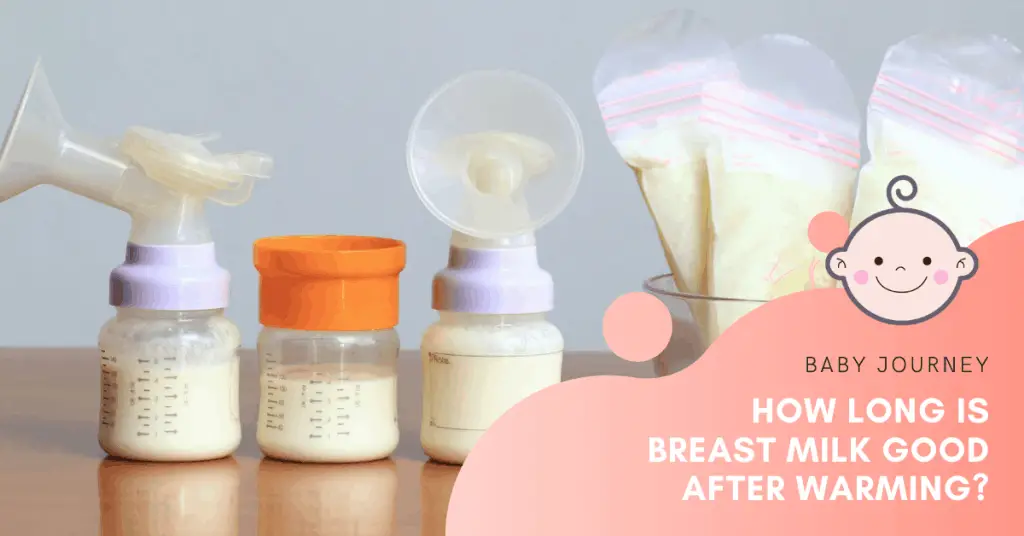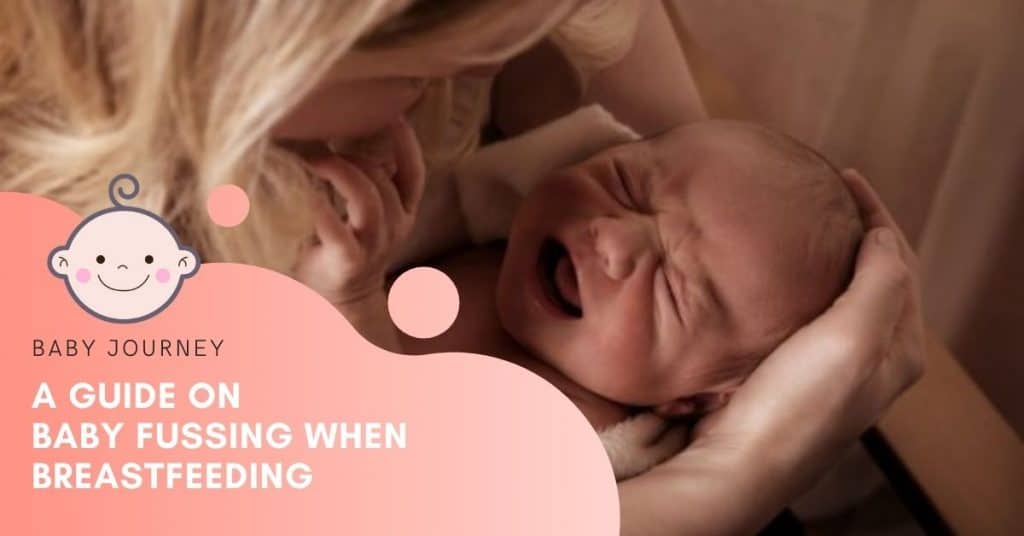Feeding Your Baby
Mothers to be may wonder what is better when it comes to feeding their baby. It is a question of breastfeeding vs pumping. Some mothers have to pump, while others choose to. Some moms use a combination.
Are you interested in learning more about breastfeeding versus pumping and the pros and cons of each? Read on!
Breastfeeding vs Pumping, Is One Better Than The Other?
Generally, a fed baby and a supported mom are best. It is important to feel happy and comfortable however you choose to nourish your baby. Some moms choose to pump full time, other moms have no choice but to pump if their baby is unable to breastfeed. And, of course, some moms exclusively breastfeed or use a combination.

What Are the Differences between Breastfeeding vs Pumping?
Breastfeeding and pumping both are used to express breastmilk and feed your baby. However, there are differences:
- Breastfeeding is when you feed your baby directly from your breasts.
- Pumping refers to using a breast pump, either manual or electric, and suction to express milk from your breasts. The pumped milk can then be fed to your baby from a bottle.
Pros & Cons of Breastfeeding
When it comes to the benefits of breastfeeding vs pumping, moms who breastfeed sometimes find it more convenient. Instead of having to choose a good pump, pack pump parts, a bottle, and bottle accessories, you can just nurse wherever and whenever you need to.
This is especially true at night when you can just pick your child up and feed them instead of pumping and preparing a bottle then feeding your baby. Here are some of the pros of breastfeeding your child:-
- Easier to feed on the go: Though there are some battery-powered pumps and manual pumps, most require an electrical outlet so it can be challenging to find a space to pump when you are away from home. As of 2018 breastfeeding in public was made legal in all 50 States. [1] As long as you are comfortable, it can be much easier to nurse when you are out and about than it can be to pump.
- No breastmilk storage issue: Giving your baby a bottle on the go can also be challenging. Breastmilk has storage guidelines [2] that require it to be refrigerated after a certain amount of time. Finding a way to keep your bottle of breastmilk cold and then heat it when you are away from home is no easy task.

- Cheaper cost than pumping: Speaking of pumps, bottles, and accessories, all of these items can add up. While breastfeeding does have some associated costs, like breast pads, nipple balm, and other items, it is generally considered much cheaper than pumping and bottle feeding.
- Baby and Mom Bonding: Aside from being convenient, breastfeeding is also a wonderful way to bond with your baby. Many moms enjoy their breastfeeding relationship and find that it is something special shared between them and their baby. Breastfeeding can be extremely comforting to babies and this can come in handy whenever you need to soothe them during feeding time.
- Longer Feeding of Breastmilk: Finally, breastfeeding commonly allows you to feed your child with breastmilk for a longer period of time than pumping. Breastfeeding is based on supply and demand, or a feedback loop.
When your baby removes milk from your breasts it signals to your body to produce more milk. Babies are much more efficient than pumps at removing milk and nursing them on demand as compared to a pumping schedule often results in a better milk supply.
Breastfeeding isn’t a walk in the park, however. It can be very challenging, especially your first time around. Here are some of the downsides to breastfeeding:-
- Sore and cracked nipples: These are common during the first few weeks. Other issues can plague you throughout your breastfeeding journey, such as mastitis, supply issues, and clogged ducts. This is especially true if you had a mastectomy and go for breastfeeding after breast cancer surgery. Usually working with a certified lactation consultant can help you overcome any breastfeeding obstacles.
- Emotional Distress: Breastfeeding can also cause feelings of emotional distress. This is because it may be very time-consuming. In those first few weeks and months after your baby is born, you may feel like you are breastfeeding non-stop. Your baby demands a lot from you and breastfeeding can make you feel like your body is not your own anymore.
- Less time for self: Also, if you decide on breastfeeding vs expressed milk, you might be left with very little time for anything else. Not only can this hinder you from doing things you like, but also completing house tasks and other work. This imbalance of time and labor can be very difficult for some couples.
It is important to think about both your baby’s needs, your needs, and your partners when considering if you want to breastfeed. Let’s take a look at the summary of breastfeeding vs pumping pros and cons.
Pros
- Convenient
- Affordable
- Bonding time
- Increased breast milk production for a longer period
Cons
- Possible breastfeeding issues/health concerns
- Loss of free time and self
- Moms is responsible for all feedings / imbalance of work load
Pros & Cons of Pumping
Some moms choose to pump exclusively, even if they didn’t encounter any breastfeeding issues. Babies who receive pumped milk are still getting almost all of the benefits of breastmilk from their mom.
Let’s take a look at some of the benefits of pumping breast milk:-
- Better mental health & More control on lifestyle: Instead of nursing on demand, which can be every ten minutes in the first postpartum weeks, pumping allows you to control the timing. Most moms create a pumping schedule that suits their obligations and lifestyle. This can help you return to work, take care of other children or chores, or just have more free time.
Since moms have a bit more control over feeding, and for some, this can be excellent for their mental health.

- Shared feeding responsibility: Another breast pump benefit is that there is less of an imbalance of labor. You can share feeding responsibilities with your partner and even other family members or friends. Since anyone can give the baby a bottle you don’t have to be present for each feeding.
Also, you can easily make use of bottle warmer to heat up milk when your baby is ready to feed. This can allow you more sleep at night, the opportunity to work away from home, or time to pursue your interests. - Increased knowledge on breastmilk supply: Finally, pumping gives you more knowledge about your breastmilk supply. Some moms worry that their baby isn’t getting enough breastmilk and they wonder how much they are taking at each feeding. Pumping allows you to know just how much milk you are making and track changes in supply over time. This can be very comforting for some moms.
However, pumping does have its drawbacks. They are:-
- Reduced antibodies for immunity: While moms who pump are still bottle feeding breast milk, that breastmilk may have fewer antibodies and immune system benefits. When the baby’s mouth comes into contact with the mom’s breasts it signals to the mom’s body which antibodies to produce to help the baby’s immune system.
So if you are wondering, is pumping the same as breastfeeding, pumping results in fewer antibodies being transferred to the mom and as a result, her breast milk may be less protective.
- Higher feeding cost: Pumping is also more expensive than breastfeeding. You need a pump and all of its accessories. You also need storage containers, bottles, and bottle accessories. Sometimes these items can break down and you need to replace them throughout your pumping journey.
- Less convenient during trips or travel: Pumping may be less convenient for some. It can be more difficult to find a place to pump when you are away from home or just busy around your house. While there are some portable pumps, most need an electrical outlet or specific accessories to be hands-free.
Finding a place to pump while you are traveling or simply out of the house can be a challenge. Also, pumping in the middle of the night is usually more involved than just breastfeeding.
- Lower milk supply than nursing directly: A comparison of pumping vs breastfeeding milk supply commonly shows that pumping elicits a lower milk supply. This is because pumping on a schedule instead of on-demand generally results in less milk removed from the breasts. Additionally, you aren’t able to as closely follow your baby’s growth spurts when they will naturally want to nurse more often.
- Breastmilk storage issues: Finally, you have to store and manage all of your pumped milk. Expressed milk doesn’t last forever, even in the freezer. You have to find a place to safely store your milk and then make sure it is being used before it expires.
When you are exclusively pumping vs breastfeeding storage concerns are just one more thing for you to keep track of as a busy mom. Pumping can be a lot of work.
To sum it up, pumping is at a slight disadvantage compared to breastfeeding:
Pros
- Frees up mom’s time
- Control over pumping/feeding schedule
- Allows others to feed the baby
Cons
- Costly
- Inconvenient if away from home or during the middle of the night
- Breast milk may be less rich in antibodies
- Often results in decreased production
There are certainly advantages and disadvantages to both. Some moms love breastfeeding, while others find that it isn’t for them. You must consider all aspects of both your and your baby’s health when deciding on breastfeeding vs pumping/bottle feeding or a combination.
Pumping vs Breastfeeding Milk Supply
Can you just pump and not breastfeed? Certainly, but exclusively pumping may affect your supply. When it comes to pumping breast milk vs nursing some pumping moms have a more challenging time producing enough milk. They also can have a hard time providing breast milk to their baby for as long as they want to.
Moms who breastfeed, and have the support to help breastfeeding go well, find that they produce enough milk and can nurse for months and even years.
Pumping moms may find that their body becomes less responsive to the pump over time. Pump motors and parts can start to break down, becoming less effective. And, not all pumps are as powerful or have as wide a variety of settings as others.
Additionally, breastfeeding on demand allows a mom’s body to keep pace with her baby’s needs. This is especially true during growth spurts when babies will naturally nurse more often. When you pump, you often pump on a schedule. This schedule may not follow your child’s milk demands as closely and as a result, your supply may start to drop.
Those who decide to breast pump vs breastfeeding usually find that it is just not as effective at removing milk nor maintaining supply. Babies are more effective at removing milk than a pump, and in turn, this helps better support milk production.

Breastfeeding vs Pumping Weight Loss
You shouldn’t expect to lose any weight while breastfeeding or pumping and losing weight shouldn’t be a high priority for new moms. However, moms who breastfeed may burn more calories but moms who pump have greater control over weight loss.
Breastfeeding moms can burn anywhere from 300-850 calories from nursing but this number is usually closer to 500-700 calories. [3]
Pumping moms generally burn less, only because they tend to express less milk. This is due to pumping on a schedule instead of breastfeeding on demand, which can result in more nursing sessions.
However, a look at breastfeeding vs pumping weight loss shows that each type has a big discrepancy in the number of calories burned per day. The wide range is due to how much you pump or nurse and how much milk is expressed.
While nursing moms may not know exactly how much milk they are producing, pumping moms can easily keep track of their ounces. It is thought that each ounce has around 20 calories. It is possible that some mothers may choose to calculate how many calories they are expending per ounce, and then tailor their diet to optimize weight loss.
But it is not advised to diet or prioritize weight loss while you are breastfeeding or pumping. When you are breastfeeding and pumping your body is working hard to produce calorie-rich milk for your child, losing too much weight or losing weight too quickly may comprise this.

Does Breastfeeding Or Pumping Cause Sagging?
Thankfully, when you look at nursing vs pumping, neither causes sagging! This is a common myth, but neither has been linked to sagging.
Many women’s breasts do look different after nursing or pumping, but it is linked to pregnancy weight gain and weight loss. Smoking has also been linked to sagging breasts. It is a misconception that nursing or pumping is solely responsible for breast sagging.
While both breastfeeding and pumping do not cause sagging, it is always good to wear comfortable nursing bras to make nursing and pumping easier for you and baby.
Additional FAQs on Breastfeeding vs Pumping
Is pumping the same as breastfeeding?
Pumping is very similar to breastfeeding, but not the same. Breastfeeding on demand usually helps moms produce more milk and produce milk for longer than pumping.
Pumps are less effective at expressing milk and maintaining supply. Pumps also do not result in as many antibodies being produced in breast milk because there is no feedback loop between the baby’s body and the mother’s.
Should I be pumping as well as breastfeeding?
A lot of moms like to do both. Pumping can enable a breastfeeding mom to be away from her baby for short periods. Someone else can feed your child a pumped bottle of milk. Pumping can also help you build a freezer stash should you ever need it.
Is it OK to just pump and not breastfeed?
It is perfectly okay to exclusively pump and not breastfeed. Many moms do this from the day their baby is born.
While there are advantages, it is a lot of work and does have a few drawbacks. However, many moms find it positive for their mental health and their lifestyle.
Does pumping affect breastfeeding?
Pumping does not affect breastfeeding as long as you pump enough and maintain a schedule. When you are away from your baby, if you don’t pump as often as you would be nursing, your supply may suffer.
Why does one breast produce more milk?
This is very common and normal. Breast milk production has to do with the milk-making glands and ducts found in your breast tissue. All women have a different amount of milk-making glands and for many women, each breast also has a different amount of glands. How much milk can be produced and stored in each breast is responsible for the variances in milk production.
Which is Better for Baby and You?
Deciding if you want to breastfeed or pump is a very personal decision. It depends on a variety of factors, like your lifestyle, preference, your wellbeing, and the wellbeing of your child.
Many women find that a combination of breastfeeding and pumping works best. This allows them to still have that special bond but also let someone else feed the baby a bottle now and again.
Whether it is better to breastfeed or pump depends on your health, your baby’s health, and your lifestyle. It is a personal decision that should be thought about and discussed with your partner before your baby is born. There is no “right” choice, a fed baby and a supported mom are what is best.
If you have any more questions please ask them in the comments!
—




